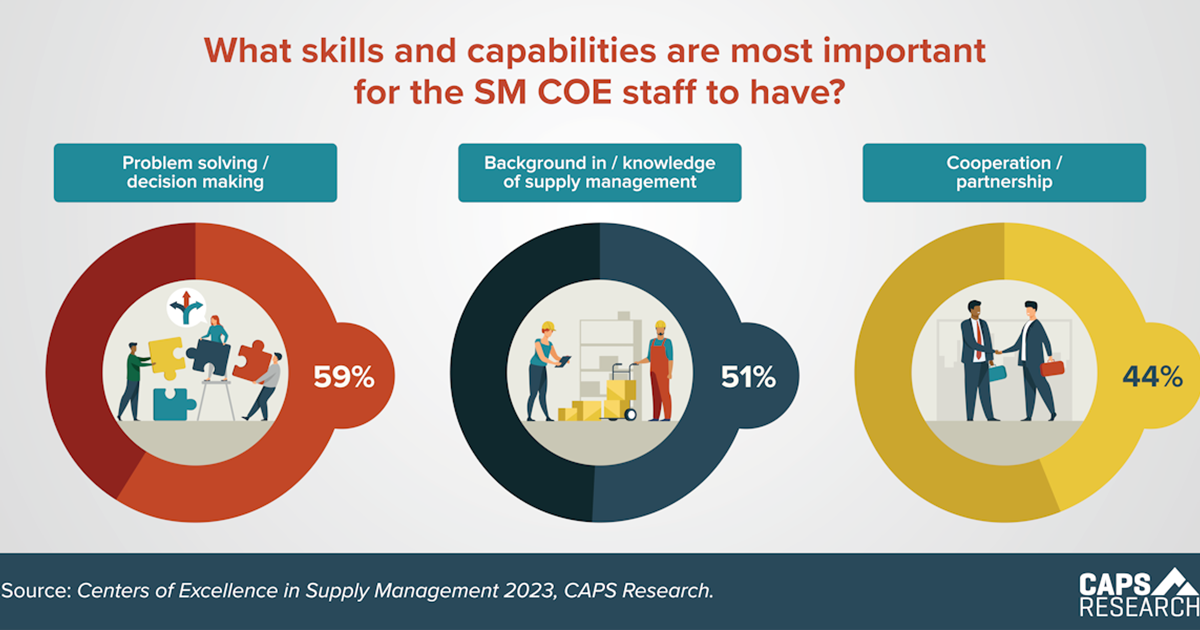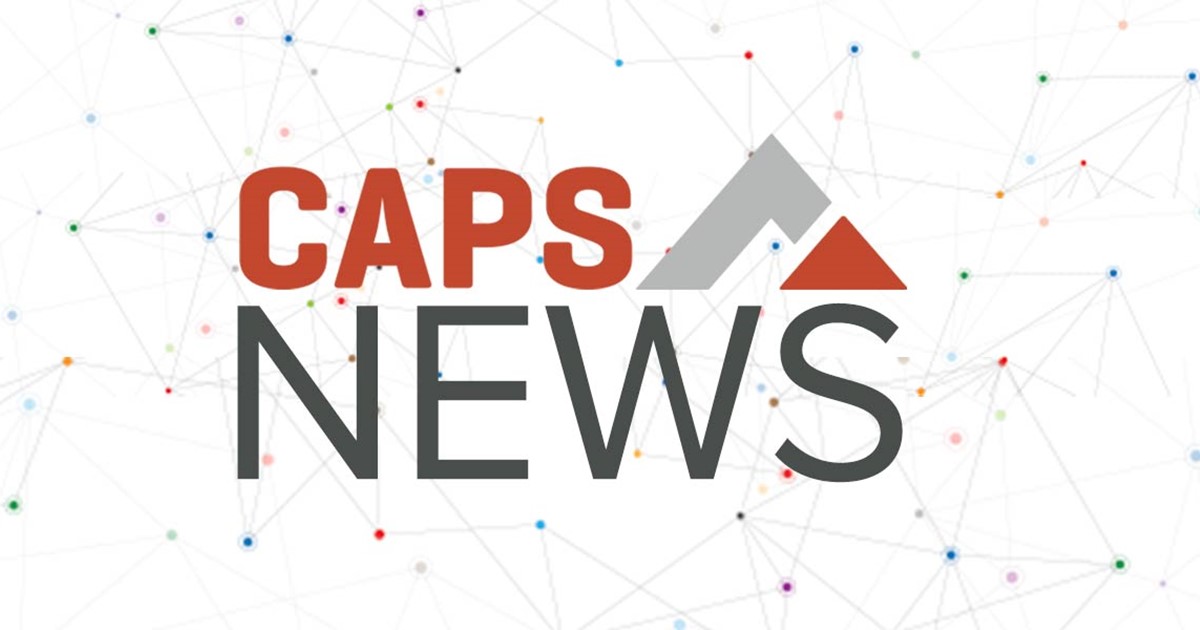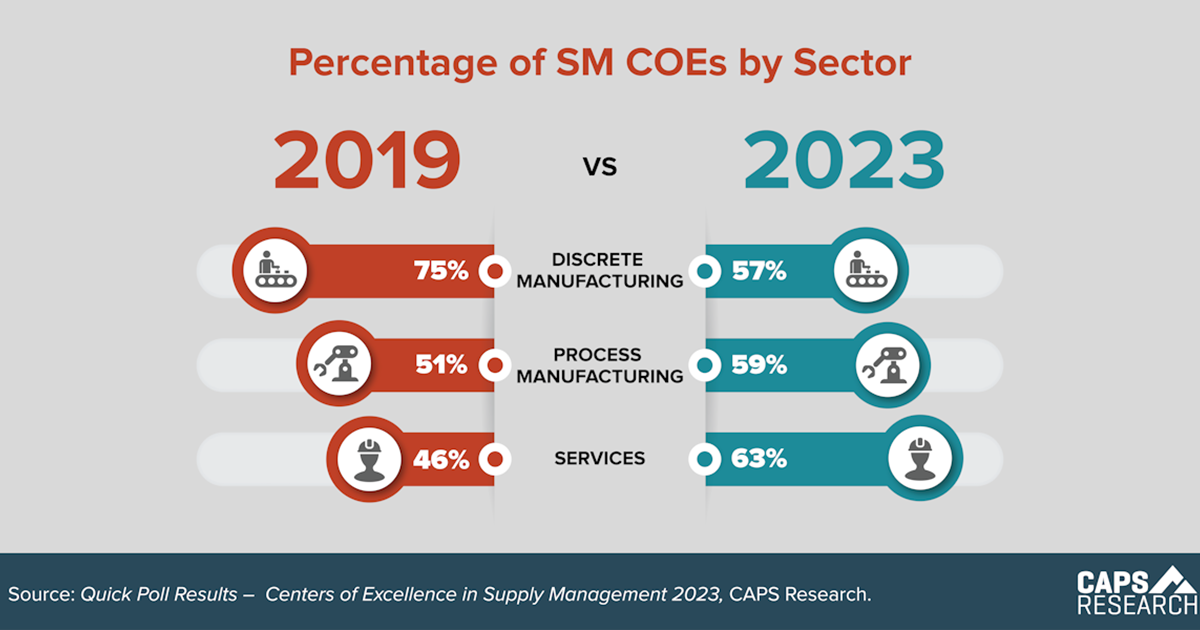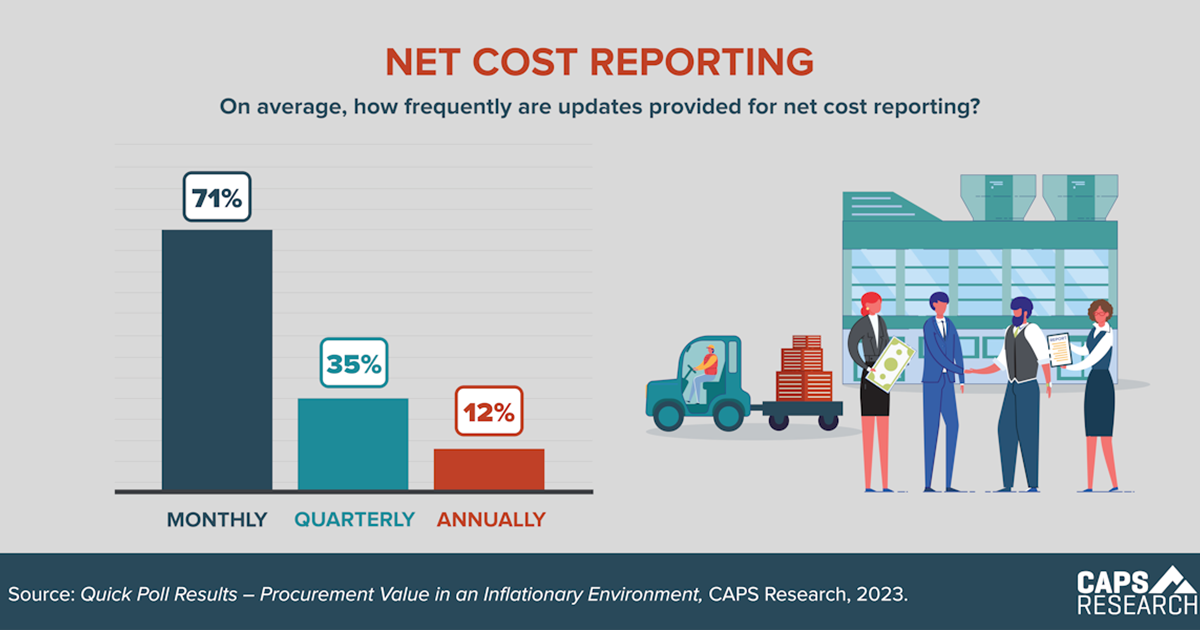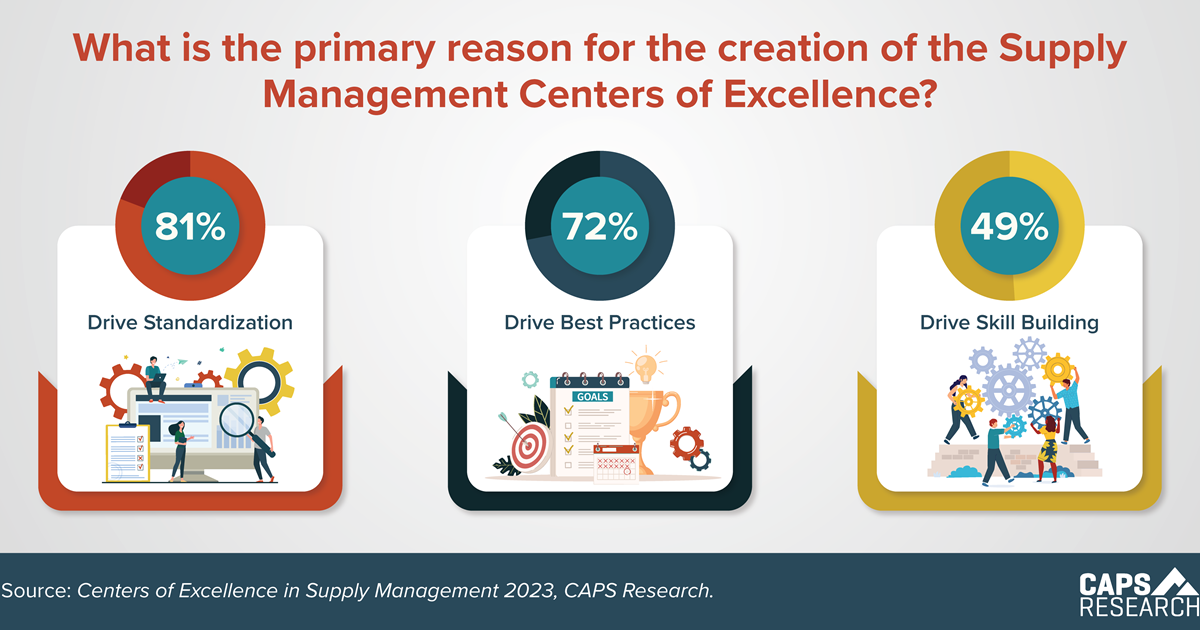Top skills and capabilities needed in 2023 for Supply Management Centers of Excellence (SM COE) employees include problem solving, supply management experience, and cooperation.
CAPS News - 23 August 2023
The latest from CAPS News: CAPS Flagship Survey, Supply Management KPI's, Best Cost Countries, Before Investing in AI, Cross Boarder, Mineral Imports
SM COEs By Sector
Over the past 4 years, the percentage of Supply Management Centers of Excellence (SM COE) in Discrete Manufacturing has decreased, while increasing in Process Manufacturing and Service Sectors.
CAPS News - 9 August 2023
The latest from CAPS News: History of ESG, Best Cost Countries, Counterfeit Epidemic, Reclaiming Control, Risk Management
Net Cost Reporting
On average, 71% of companies surveyed provide monthly updates for net cost reporting, while 35% update quarterly and 12% update annually.
Top 3 Reasons for SM COEs
In 2023, the top 3 reasons companies create and use Supply Management Centers of Excellence (SM COE) are to drive standardization, best practices, and skill building.
CAPS News - 26 July 2023
The latest from CAPS News: Carbon, COE, Shipping, Competitive Advantage, Battery Advancements
CAPS News - 12 July 2023
The Changing Landscape of Supply Chain: Supplier Risk, Transportation, Center of Excellence, Net Cost Reporting, and AI Replacing Supply Chain Jobs
5 Most Important Themes in 2026
According to almost 200 supply chain executives, the 5 most important themes requiring attention in 2026 will be ESG, supply chain resilience, cost efficiency, implementation of technologies, and strategic alignment.
CAPS News - 28 June 2023
The Changing Landscape of Supply Chain: Supplier Risk, Transportation, Center of Excellence, Net Cost Reporting, and AI Replacing Supply Chain Jobs
